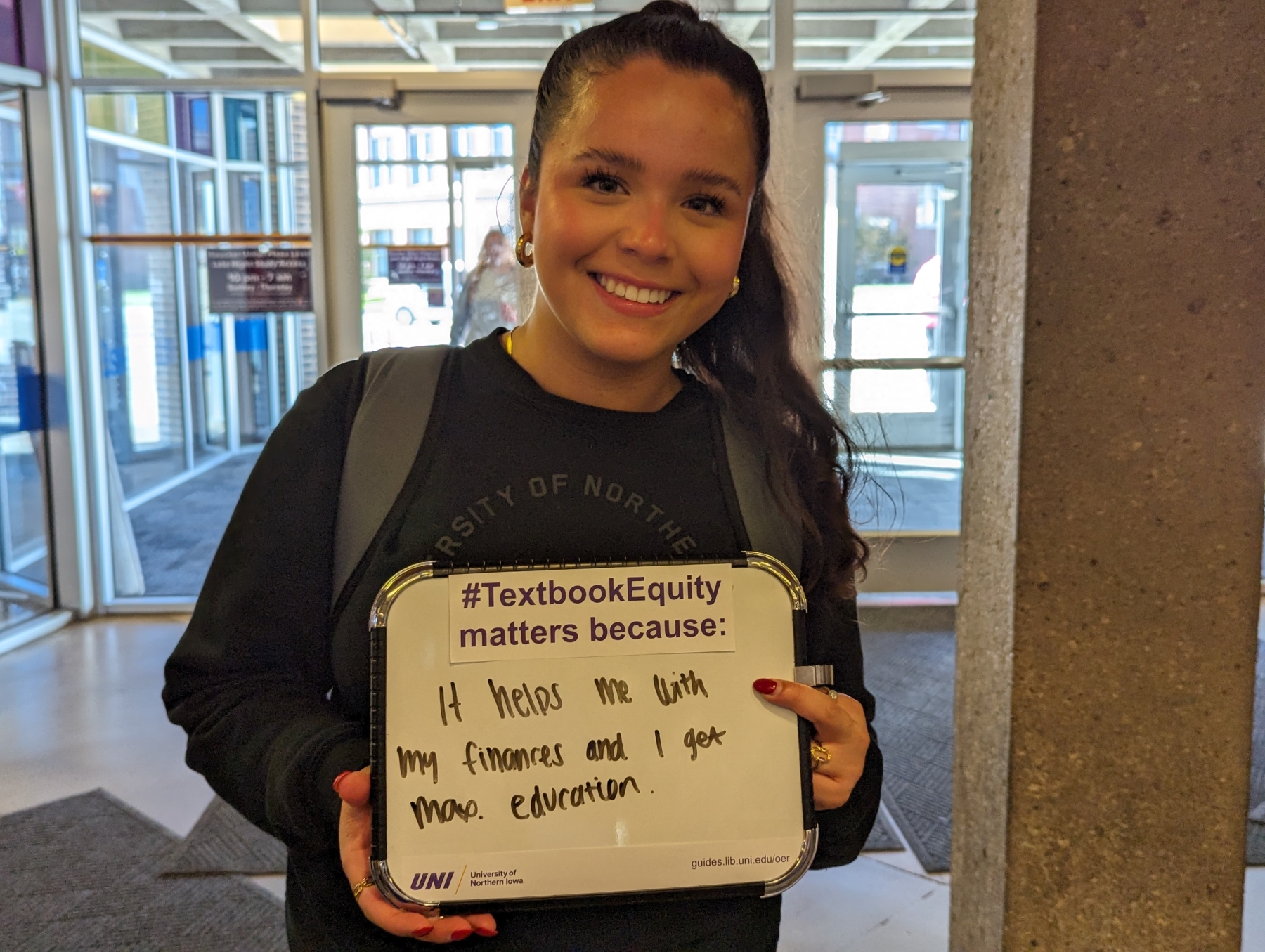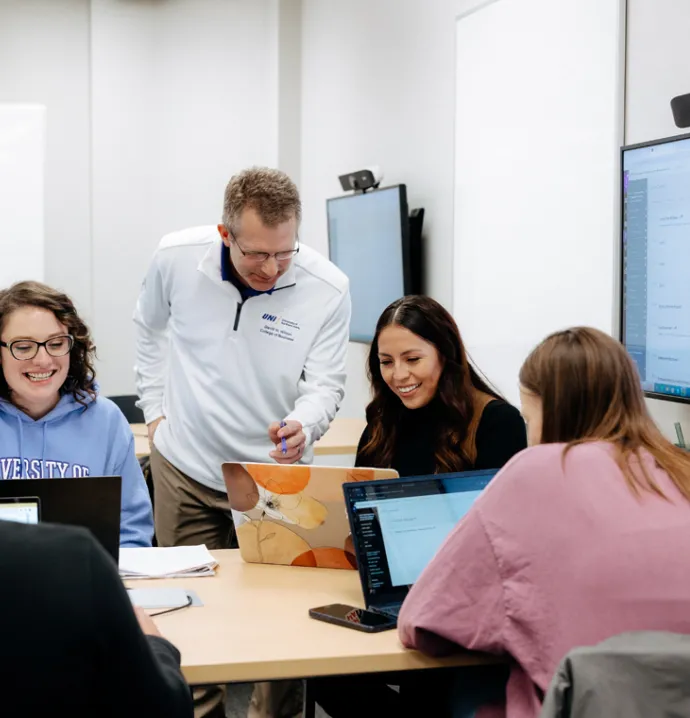Campuswide initiative saves UNI students $2.4 million on course materials
Campuswide initiative saves UNI students $2.4 million on course materials

The University of Northern Iowa’s Textbook Equity initiative has officially saved UNI students more than $2.4 million since its inception in 2016, including nearly $500,000 in savings last year alone. The campuswide initiative led by UNI’s Rod Library is focused on increasing access to high-quality course materials that are affordable, accessible and inclusive.
Watch's UNI's presentation about textbook equity at the Iowa Board of Regents
Textbook Equity encompasses a variety of ways instructors can make their course materials more accessible to students. Open educational resources (OER) take the form of free and openly licensed textbooks, which may sometimes be created by the instructors themselves, digital slides or lesson plans. Open educational resources provide similar learning outcomes for students when compared to traditional commercial textbooks. They also significantly decrease course withdrawal and fail rates among students.
“This movement is very much led by individual faculty who want creativity and flexibility in the way they teach, but who also really deeply care about our students and realize that they cannot all afford the commercial materials,” said Anne Marie Gruber, UNI’s Textbook Equity librarian. “They have committed to making the change, so they’re our big champions who have made those selections.”
In 2023, more than 80 UNI faculty members across all academic colleges reported adopting course materials that are free to students, a 129% increase from 2022. These faculty members represent more than 140 sections of 57 courses. Adopting free course materials benefited more than 3,250 students last year alone.
In a 2023 survey of nearly 1,800 UNI students, more than one in four reported avoiding purchasing required texts. Thirty-nine percent of respondents reported sharing textbooks, and 23% reported changing sections or avoiding a specific course due to textbook costs.
According to Gruber, the benefits of open educational resources go far beyond the savings for students. One major benefit for instructors is they can modify OER, unlike traditional commercial textbooks.
“Instructors who participate say the initiative allows them to teach the way they want to teach because they're not stuck feeling like they have to get students' money's worth out of one commercial text,” she said. “They might be more likely to use multiple resources, maybe a chapter here, a chapter there, an article here. That really can help them use their academic freedom and expertise to teach the way they want.”




